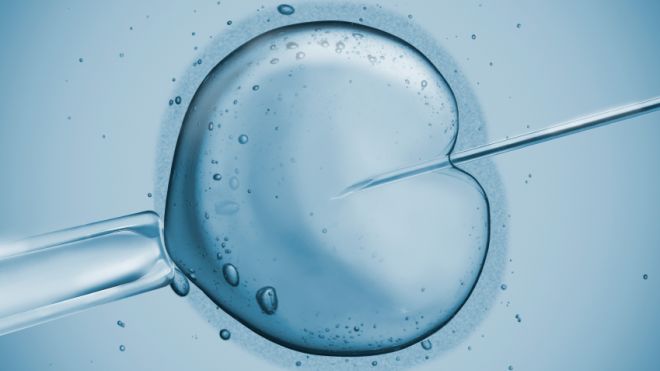by Iris Waichler, L.C.S.W.
People who are undergoing infertility put all their energy into having a healthy baby. Those who are lucky enough to have a healthy child …
Month: October 2012
Make-up Triggers Early Menopause
CHEMICALS found in make-up, hairspray and food packaging are causing women to hit menopause early, researchers warn. Those exposed to high doses have been found to go through the change almost two and a half years before other women.
And in some cases, these chemicals may be causing women to stop having periods 15 years too soon, say scientists. Read full article.
Can Cheese Harm a Man’s Fertility?
Young men who eat more than three slices of cheese a day may be risking their chances of becoming fathers, according to research. Even small amounts of full-fat dairy food have been shown to dramatically impair their fertility.
Harvard academics have discovered that men who eat just three portions a day had poorer quality sperm compared to others. A portion included an ounce of cheese (28g), a teaspoon of cream, a scoop of ice cream or glass of full-fat milk.
The researchers believe that female hormones that occur naturally in milk may be interfering with men’s ability to reproduce. Read full article.
ASRM 2012: Child abuse associated with slight increase in risk for endometriosis
Evidence from epidemiologic studies suggest that early trauma is associated with disease of the reproductive tract [1]. Research from Harvard University has shown that women who report child sexual and physical abuse have a 34% greater risk of being diagnosed with endometriosis in later life [2]. Read full article.
Active Lifestyle Leading Up To IVF Treatment Makes Women Far More Likely To Conceive
Gardening, doing the housework or going for brisk walks can treble IVF success, according to researchers. Women who led active lifestyles in the year leading up to their treatment were far more likely to conceive. Scientists have been divided about whether exercise helps or hinders the chances of pregnancy, either naturally or with IVF.
While some studies have found that physical activity reduces fertility, others have found it improves it – or makes no difference.
Now scientists have found that women who do the housework, go for brisk walks or take other ‘moderate’ forms of exercise are three times more likely to conceive than those who spend most of the day sitting down.
The lifestyles of 87 women undergoing IVF were compared in the year leading up to their treatment. Read full article.
Study Explains Link Between Hyperprolactinaemia And Infertility
Hyperprolactinaemia is a major cause of anovulation. Anovulation means no ovulation occurs in a woman’s menstrual cycle. Hyperprolactinaemia is where abnormally high levels of the hormone prolactin are in the blood. Prolactin is a hormone that is found in both men and women, that’s secreted by the pituitary gland and is released at various times during the day. This hormone enlarges a woman’s mammary gland preparing her for breastfeeding.
New research has been discovered, until now not much was known in detail of what increases prolactin in women. All that was known was that an increase of prolactin in women had disturbed one of the most important hormones affecting fertility, GnRH(Gonadotropin releasing hormone), which is responsible for the production of sex hormones, and the stimulation of the luteinizing hormone and follicle stimulating hormone (LH and FSH). Read full article.
We Need to Talk About Our Eggs
WHEN I recently mentioned to a pregnant acquaintance that I was writing a book about egg freezing (and had frozen my own eggs in hopes of preserving my ability to have children well into my 40s), she replied, “You’re so lucky. I wish I had known to freeze my eggs.”
She was 40 years old and wanted two children, so she and her husband were planning to start trying to conceive a second child shortly after the birth of their first. “Now everything is a rush,” she said. Married at 38, she didn’t think to talk to her obstetrician-gynecologist about fertility before then. If her doctor had brought up the subject, she said, she might have put away some eggs when she was younger. Read full article.
IVF Is Efficient and Cost-Effective
Although infertility treatment is expensive, it can be the most efficient means of achieving a pregnancy for many patients. While “low-tech” interventions may appear cheaper, questions arise concerning the cost-effectiveness of different treatment choices. Which is better: routine IVF or lower-tech interventions like IUI? Researchers presenting their work at the 68th Annual Meeting of the American Society for Reproductive Medicine have examined data to show that IVF is cost-effective, and that its costs are lower when the mother is younger.
Infertility Insurance Coverage Leads to More Births, Can Ease Health Disparities
Two studies done at Washington University in St. Louis and presented to the 68th Annual Meeting of the American Society for Reproductive Medicine show the impact that having health insurance coverage for infertility can make.
ART Linked to Heart Defect
NEW ORLEANS — The use of assisted reproductive technology (ART) — of which in vitro fertilization is the most common technique — appears to be associated with higher rates of birth defects, researchers found.
Babies born to mothers who used ART to conceive were more likely to have a major birth defect compared with those born to mothers who conceived naturally, according to Dr. Lorraine Kelley-Quon of Mattel Children’s Hospital in Los Angeles, who reported the findings at the American Academy of Pediatrics meeting here. The results held up even after adjusting for potential confounders like maternal age.
In particular, ART was associated with an 81 percent increase in the relative risk for defects of the eye, a 41 percent increase in relative risk for congenital heart defects, and a 40 percent increase in relative risk for defects of the genitourinary system. Read full article.
